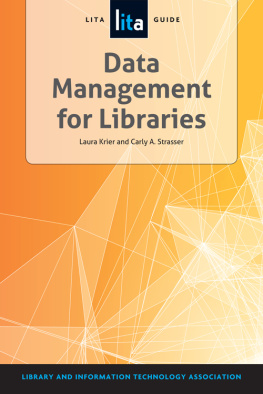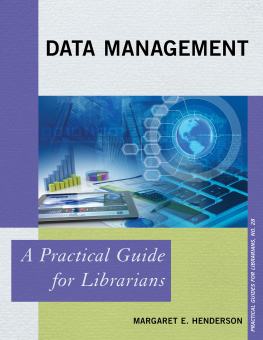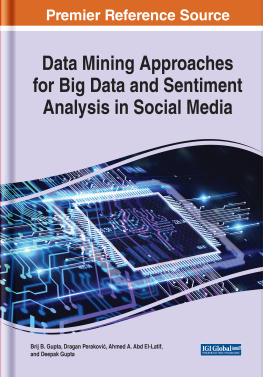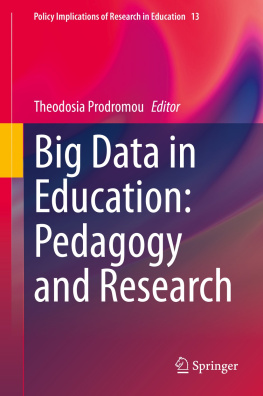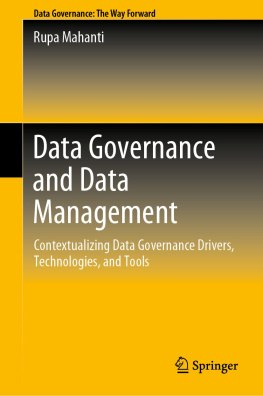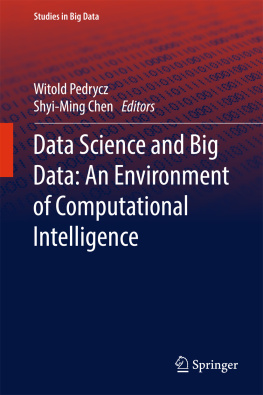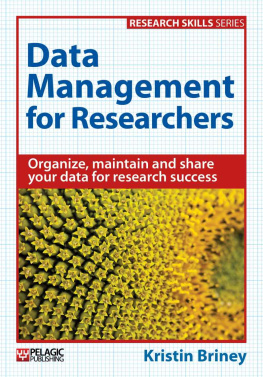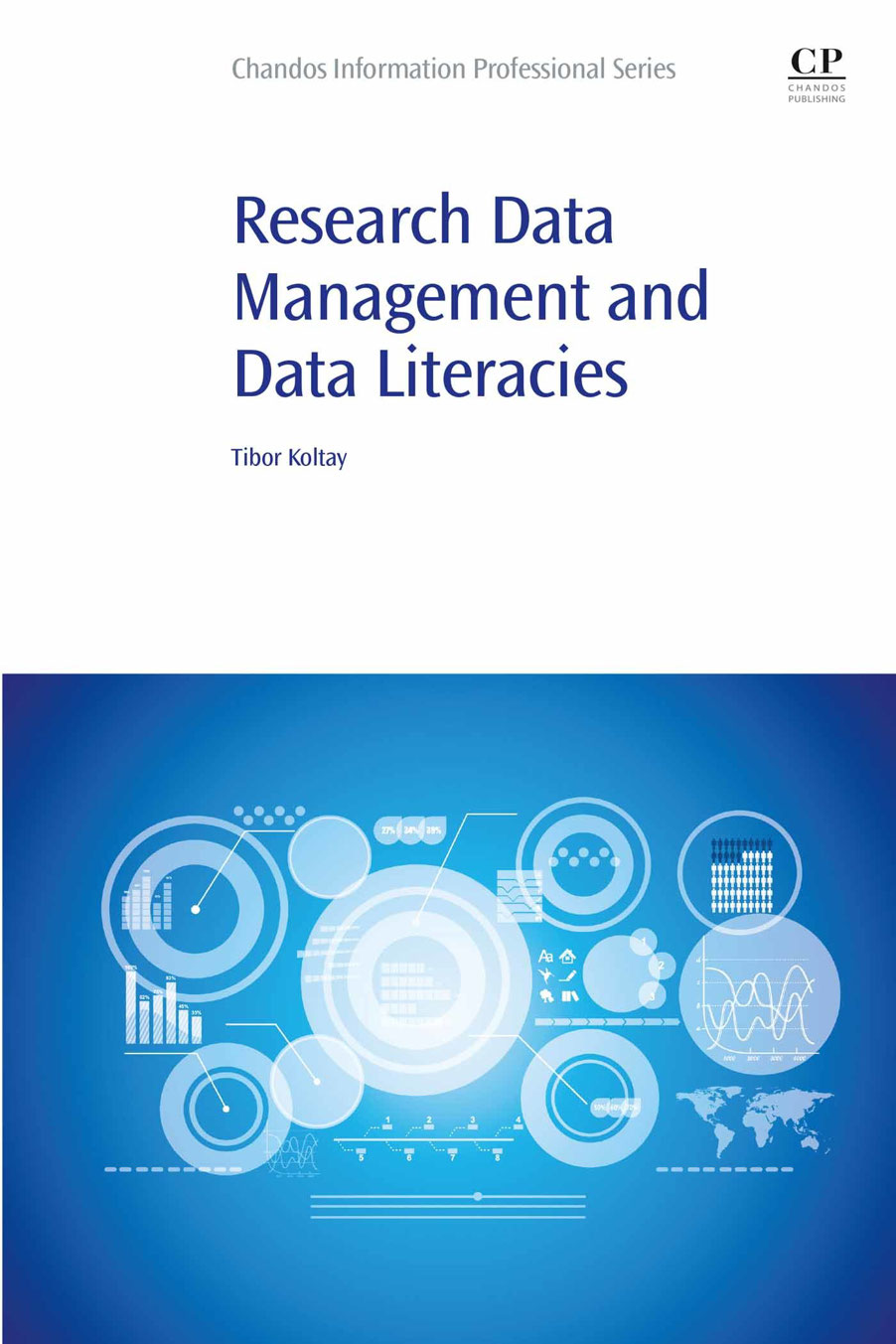
Research Data Management and Data Literacies
First Edition
Tibor Koltay

UNTITLED
Copyright
Chandos Publishing is an imprint of Elsevier
50 Hampshire Street, 5th Floor, Cambridge, MA 02139, United States
The Boulevard, Langford Lane, Kidlington, OX5 1GB, United Kingdom
Copyright 2022 Elsevier Ltd. All rights reserved.
No part of this publication may be reproduced or transmitted in any form or by any means, electronic or mechanical, including photocopying, recording, or any information storage and retrieval system, without permission in writing from the publisher. Details on how to seek permission, further information about the Publishers permissions policies and our arrangements with organizations such as the Copyright Clearance Center and the Copyright Licensing Agency, can be found at our website: www.elsevier.com/permissions .
This book and the individual contributions contained in it are protected under copyright by the Publisher (other than as may be noted herein).
Notices
Knowledge and best practice in this field are constantly changing. As new research and experience broaden our understanding, changes in research methods, professional practices, or medical treatment may become necessary.
Practitioners and researchers must always rely on their own experience and knowledge in evaluating and using any information, methods, compounds, or experiments described herein. In using such information or methods they should be mindful of their own safety and the safety of others, including parties for whom they have a professional responsibility.
To the fullest extent of the law, neither the Publisher nor the authors, contributors, or editors, assume any liability for any injury and/or damage to persons or property as a matter of products liability, negligence or otherwise, or from any use or operation of any methods, products, instructions, or ideas contained in the material herein.
Library of Congress Cataloging-in-Publication Data
A catalog record for this book is available from the Library of Congress
British Library Cataloguing-in-Publication Data
A catalogue record for this book is available from the British Library
ISBN: 978-0-12-824475-3 (print)
For information on all Chandos publications visit our website at https://www.elsevier.com/books-and-journals

Publisher: Glyn Jones
Editorial Project Manager: Aleksandra Packowska
Production Project Manager: Vignesh Tamil
Cover Designer: Victoria Pearson Esser
Typeset by STRAIVE, India
Acknowledgments
I express my gratitude to my wife va for her patience and support, and to Dr. Jnos Tth, mathematician, friend, and coauthor of a Hungarian handbook on research and publishing in the natural sciences, for his help in writing this book.
Introduction
Introductions often foretell what will be said in the given work. Sometimes, they also allow an insight into the personal motivations of the author to engage in such an endeavor. This introduction aims to fulfill both functions.
This monograph is in many regards a continuation of an earlier book, titled Research 2.0 and the Future of Information Literacy , that we wrote with Sonja piranec and Lszl Z. Karvalics ( Koltay, piranec, & Karvalics, 2016 ). One of the reasons for mentioning this is that Research 2.0, also called e-Science ( Hey & Hey, 2006 ), is still with us, while there are plenty of new developments in academic librarianship.
Some of the fundamental ideas and motivation for writing this book came from two works of Christine Borgman, who directed our attention to the fact that researchers do not need more data, but require the right data. She has also stated that to serve as research data, little data can be just as valuable as big data, or there may be no data at all because relevant data cannot be found, is not available, or does not exist ( Borgman, 2007 , 2015 ).
The title of this book is made up of two concepts. The first is research data management (RDM) that is the result of the technological developments that made managing big amounts of data possible, triggering thereby the growing interest in research data. The second one appears in the title as data literacies , and this requires additional explanation, because it is usually known as data literacy . However, the plural term underlines the plurality of approaches and methods in this field. Furthermore, it relates to the endeavor of enabling the multiplicity and interconnection of data literacy practices with other literacies ( Fotopoulou, 2020 ). Let us also mention that, in 2014, the author of this book published a paper with a somewhat provoking question in its title: Big data, big literacies? ( Koltay, 2014 ). We are certain today that the existence of big data cannot be denied. On the other hand, while it is accepted that there are varied literacies, such a thing as big literacy does not exist, at least not in the literal sense.
This book appears in times when the growing availability of research data has triggered interest in the complex issue of openness, involving the idea of open science (OS), the spread of which is fundamental in academia (although effectuating it seems to be thornier than it was in the case of open access to publications) ( Cox & Corrall, 2013 ). The OS requirements and the management of research data, alongside incentives for data sharing and reuse, also have become high-priority issues, although their acceptance is still varied. Hence the level of preparedness of researchers and academic libraries is not uniform by discipline or by country ( Tenopir et al., 2017 ).
We also see that many (new) literacies have gained ground in our professional lives. There are varied disciplinary approaches to these developments. In this book, most challenges and results related to these developments are portrayed through the lens of library and information science (LIS).
Among the members of this family of literacies, information literacy (IL) has remained a central one. Moreover, in some environments, first of all in academic libraries, IL education is now a practically self-evident task, or close to becoming one, even though there is well-grounded dissatisfaction with its spread and impact. Obviously, we know that a substantial number of new literacies have emerged in the meantime, and among them data literacy has acquired well-deserved importance. This fact has its roots in data literacys closeness to IL but is also due to recognizing that, without data-literate students and professionals, RDM cannot be successful, or at least may prove ineffective.
The League of European Research Universities ( LERU, 2013 ) has encouraged academic libraries to make efforts to relieve researchers of their technical and administrative burdens. This is undoubtedly a respectable goal, which, however, must be transcended. Therefore libraries should look for extending their collaboration with researchers. More than that, they must make substantial efforts to achieve this goal.
As a rule, from among the many expressions that denote libraries related to research and higher education, such as university library , college library , research library , and academic library , the latter term will be used in this book. No matter which name is used, services offered by these libraries should be started where appropriate, i.e., when and where their appropriateness and innovativeness are recognized by a number of stakeholders, including communities of researchers, research funders, and research organizations.


